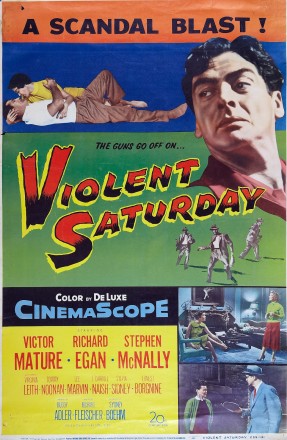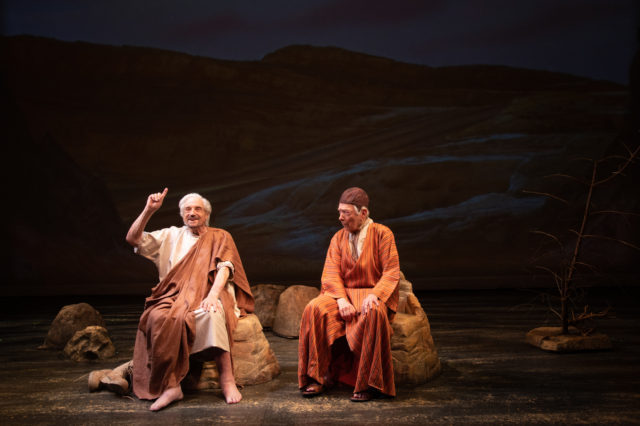
Hal Linden and Bernie Kopell star in Two Jews, Talking at Theatre at St. Clement’s (photo by Russ Rowland)
TWO JEWS, TALKING
Theatre at St. Clement’s
423 West Forty-Sixth St. between Ninth & Tenth Aves.
Friday – Sunday through October 23, $88-$127.50
www.twojewstalking.com
There’s something special happening at the Theater at St. Clement’s right now: Television icons Hal Linden and Bernie Kopell are starring in the two-act comedy Two Jews, Talking. For an hour and a half, the ninety-one-year-old Linden, a Tony and three-time Emmy winner best known for playing the titular New York City police captain in Barney Miller, and the eighty-nine-year-old Kopell, who portrayed the evil KAOS agent Siegfried on Get Smart and charming ship’s doctor Adam Bricker on The Love Boat, argue and complain about life, love, and religion.
In the first act, Kopell is Bud and Linden is Lou — a nod to the classic duo Abbott and Costello — two Jews taking a break as the Israelites are making their way through the desert, having escaped from their Egyptian taskmasters. They discuss the Ten Commandments, the rules of kashrut, and the debauched celebration with the Golden Calf.
“What a night that was,” Lou says. “Our cares, like our robes, thrown to the wind. Then Moses comes down from his mountain and ruins everything.” Bud asks, “What did you expect? He was angry. He turns his back for a minute and all hell breaks loose.” Lou responds, “Four hundred years we were slaves — finally we’re free and we can’t throw a party?”
In the second act, Phil (Kopell) and Marty (Linden) are sitting on a park bench, griping about the state of the world and the pitfalls of aging. “In a million years, you’ll never guess where I was this morning,” Marty says. “Probably not,” Phil answers. “Mount Sinai,” Marty tells him. “The hospital?” Phil asks. “No, the place where Moses handed down the Ten Commandments. Of course the hospital,” Marty says. “You don’t look sick,” Phil adds.
The play was written by seventy-seven-year-old Emmy and Peabody winner Ed. Weinberger, who wrote and cocreated such television classics as Taxi and The Cosby Show, and is directed by Obie winner Dan Wackerman (Ten Chimneys, Morning’s at Seven).
Last week I sat down with Linden and Kopell in one of their dressing rooms at the theater — I had brought rugelach, and Linden immediately partook — and we kibbitzed about the play, Judaism, and their long and distinguished careers in show business, including naming their favorites as well as their not-so-favorites. It all began with me fumbling with my iPhone recorder.
twi-ny: Sorry about this; I’ve only had a phone for about a year.
hal linden: So you never had a phone.
Stage manager Catrina Honadle, pointing at Kopell: That’s him too.
twi-ny: Never had a phone. I always carried around dimes, then quarters.
hl: They don’t have pay phones anymore.
twi-ny: There are actually a few left.
hl: Back in the day, we had answering services, and you had to constantly stay in touch with them. They would get angry at you if you didn’t keep calling in. “You didn’t call in; you missed your appointment!”
bernie kopell: Harvey Korman, we’d call him up and ask, “Anything for Harvey Korman today?” “No, sorry.”
twi-ny: Another funny man.
hl: Another funny man.
bk: I spoke at his memorial. A lovely human.
hl: Yeah. I think was there.
bk: Mel [Brooks] was there.
hl: I think I was there. I’m trying to remember where it was.
bk: Carol Burnett was there.
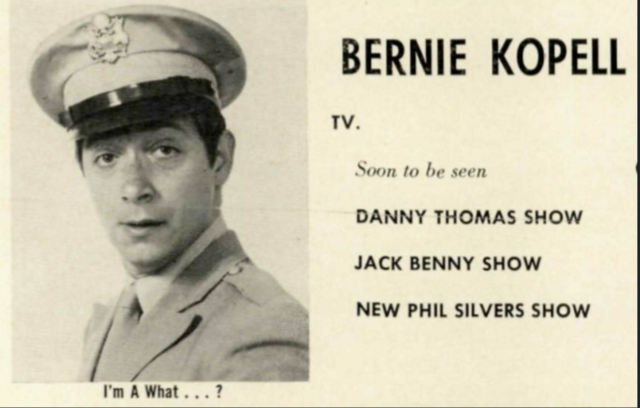
twi-ny: Do you remember any of what you said about him?
bk: He was a dear friend. We would play ferocious ping-pong, drink vodka, and listen to Mel Brooks’s 2000 Year Old Man again and again. And it was always funny.
twi-ny: It’s funny that you bring that up, because I see your show as a kind of Waiting for Godot meets The 2000 Year Old Man.
[Kopell and Linden both laugh.]
twi-ny: I mean, you’ve got the set with the tree, the boots, two guys waiting to go to the holy land. And, for the most part, Bernie is the straight man and Hal is the one who’s kvetching.
hl: Kvetching.
bk: Kvetching.
twi-ny: I saw the show on the first Saturday night preview. So it was very early, but I wanted to see it before speaking with you both.
hl: That was a little touch and go, that one.
twi-ny: You know what, I had a blast. It was a lot of fun. Okay, so we’re Hal from the Bronx, Bernie from Brooklyn, Mark from Brooklyn — Flatbush — and we’re three New York Jews sitting, talking in a church.
hl: I always thought that was a wonderful irony. Two Jews talking in a church.
bk: Another irony just before I left California, I played a Catholic priest on Grey’s Anatomy. The check cleared; it was wonderful.
twi-ny: Bernie, like you, my father graduated from Erasmus Hall also. He went to Brooklyn College.
hl: Do you know how far Brooklyn was from where I grew up?
twi-ny: It was like a different country, wasn’t it?
hl: I was a Brooklyn Dodger fan. In the Bronx.
twi-ny: Oh, wow.
hl: Yes. Only because I hated the Yankees ’cause they won all the time and it was, you know, Brooklyn was Dem Bums. I only saw one game in Ebbets Field in my life. Do you know how far it would be to go? I was a musician as a young boy, actually; my whole social life was I would be playing in the band and trying to pick up some beautiful girl, and she was interested, but she lived in Brooklyn. We called it GU —
hl & bk: Geographically undesirable.
hl: I couldn’t go out to Brooklyn; it would take me another two and a half hours to get home.
twi-ny: Today, I have friends who go to the theater, go out all the time. And they’ve never been to Brooklyn, even from Manhattan, which is kind of absurd.
hl: There are five planets here.
twi-ny: My parents, when they were dating, could walk to Ebbets Field. They’d also go to Coney Island.
bk: Nathan’s hot dogs.
twi-ny: My wife and I ate at Nathan’s last week. We go to Coney Island every year.
hl: The one thing I had to give up was hot dogs — hot dogs, sausage.
twi-ny: But rugelach is still on the menu.
hl: Rugelach — I’m gonna have to check to see if I can have another one.
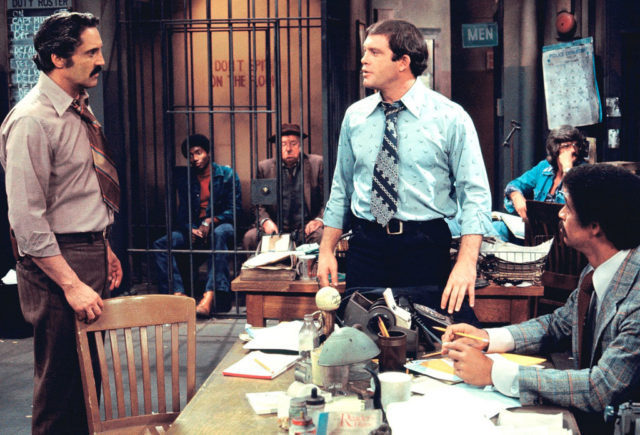
Hal Linden, Max Gail, and Ron Glass get real on Barney Miller
twi-ny: So I want to thank you guys for keeping me personally entertained over the course of the pandemic. I watched every single episode of Barney Miller. I watched a whole bunch of Love Boats. Then, all of a sudden I’m watching B Positive and there’s Bernie. I’m watching Better Things and there’s Bernie. Popping up all over the place.
bk: I keep saying, If you don’t fuck up too badly, they let you continue.
twi-ny: So you’ve been busy with lots and lots of appearances like that.
bk: Yes, I have. I’m very grateful.
twi-ny: And Hal, I also saw you in Off Broadway, the virtual play that you did. Where you come in at the end.
hl: Yes. I shot that on my terrace in California. You never saw anybody else. We had to really do it on the fly because I was the only one who was not sitting in front of a computer. That was my suggestion because I didn’t have a computer that I could get out on the balcony. So I said, Why don’t I just do it handheld and put the camera down on the chair. So it was kind of weird. It was interesting. I never did see the whole thing.
twi-ny: What kept you entertained over the last two plus years?
hl: Sports. I’m still a Dodger fan.
twi-ny: So you stuck with them when they moved.
hl: Yeah. I am a Dodger fan from when Red Barber did games out of town on ticker tape. That’s how long. I remember sitting around; my father had a Stromberg Carlson radio — it was this high, that big — and sitting around listening to the World Series with Mickey Owen’s passed ball. It was 1941, I think. So I’ve been a Dodger fan since I was a little boy listening on my little radio next to my bed.
twi-ny: And now the Dodgers and the Mets are playing this week at Citi Field.
hl: I know. I’m trying to go to the game tomorrow.
bk: I’m dittoing the Dodgers, because my kid [Adam, named after Kopell’s character on The Love Boat], he just turned twenty, is a great Dodger fan, and he’s a charming kid. The publicity people have kind of adopted him. He goes to games for free. We watch the games sometimes at home and he’s cheering for the Dodgers. He has a picture with Sandy Koufax, he has a picture with Tommy Lasorda, these great, great people.
twi-ny: I come from one of the families where, if I wanted to do something on Yom Kippur, my parents said, Sandy Koufax wouldn’t pitch on Yom Kippur, so you can’t do that.
hl: That’s right.
twi-ny: And in my father’s office at home, there was only one thing on the wall, a picture of the ’55 Dodgers. But a few years after the Dodgers left, he came over to the Mets.
hl: I went to the Mets for a few years, but then when I went back to LA, I went back to the Dodgers.
twi-ny: Bernie, have you worked at all over Zoom over these two years or online in any way?
bk: I wouldn’t know if it was Zoom or what.
twi-ny: So you didn’t have to even rehearse on Zoom, like when you were preparing for this show?
hl: We lived in California. So we got together and worked on it.
bk: We rehearsed at his place, sometimes we rehearsed at my place.
twi-ny: Avoid that whole computer thing.
hl: Yes.
bk: Can I just throw this in?
twi-ny: Yes, of course. This is just three Jews, talking.
bk: I’ve worked with Maurice Schwartz, the great Yiddish tragedian. The chairman of the drama department at NYU, professor Randolph Somerville, said, If you get a chance, work with Maurice Schwartz. So I’m in the Navy, and finally I catch up with Maurice Schwartz at the Ivar Theater in California. And James Drury, who is a co-student of mine, we zoom over to the Ivar Theater and say, Let’s bring up Somerville and he’ll cast us. So we brought up Somerville and he cast us. The problem was, he was at the end of his mental power, tragically. He was so mean to the actors and actresses. And there was an actor by the name of Philip Cary Jones, who was a little cockeyed.
So he was supposed to say, [in a Yiddish accent] “As a fleeing Jew, the sun is down, the ship, I suppose, will also go down.” It was called A Lonely Ship. So Schwartz didn’t like his reading, says, “Do it this way: The sun is down, the ship, I suppose, will also go down.” He tried it the same way: “The sun is down, the ship, I suppose, will also go down.” Schwartz said, “Mr. Philip Cary Jones, you may have worked with Katharine Cornell, but I’ll tell you the truth. You’re setting the theater back a thousand years.” Oh, this is how he was, at that time in his life.
twi-ny: Well, you know, Yiddish theater is making a comeback over the last ten years or so. There’s the New Yiddish Rep and the National Yiddish Theater Folksbiene.
hl: They did Fiddler.
twi-ny: Right, and it’s coming back in October.
hl: In Hebrew?
twi-ny: They do it in Yiddish with Russian and English surtitles.
hl: I’m on the album. They made an album of that [Fiddler on the Roof in Yiddish: 2018 Cast Recording], but they added songs cut from the original. Sheldon Harnick did one. I did one [“Get Thee Out,” with Richard Kind, Tam Mutu, Shaina Taub, and Matthew Sklar].
twi-ny: Well, you know, you need to see it because in Yiddish, “If I Were a Rich Man,” do you know what it translates as?
hl: “If I Were a Rothschild.”
twi-ny: And there’s the Tony that you won, for The Rothschilds.
bk: I saw the film recently and I thought it was brilliant.
twi-ny: And there’s a new documentary about Norman Jewison and the making of the movie [Fiddler’s Journey to the Big Screen]. He tells the story where he admits to the studio, You know, you’re hiring a goy.
bk: They assumed that Jewison is Jewish.
hl: I was not a fan of Topol.
twi-ny: As an actor or as a person?
hl: No, I didn’t like his interpretation after I saw Zero do it.
twi-ny: My parents saw Herschel Bernardi.
hl: I saw Herschel Bernardi.
bk: Norman Jewison directed the first film I ever did, which Carl Reiner wrote, The Thrill of It All.
twi-ny: Well, this is a good time to turn our attention back to Two Jews, Talking. When you guys began working together, did you automatically know who was gonna play which role or did you work that out over time?
hl: It was interesting. I was on it before Bernie and there was a question because it was originally written with Ed Asner in mind.
twi-ny: And Jamie Farr.
hl: That was the original. And when I read it for the first time, it was with Jamie; Ed had died. Ed had been immobile, so he played the two parts where you don’t move. So Ed played Bernie’s part in the second act but my part in the first act. But once I read it, I said, If we’re gonna make a play out of it, you gotta have some continuity, some relationship so that we can enunciate the themes, that I’m the one who’s cynical and skeptical. And the other part is the believer. That was right off the bat. I switched to that part, but then again, I became semi-immobile [laughs] because I just had a hip operation.
bk: Let me throw this in about Ed Asner. One of the sweetest human beings. I guested one time on The Mary Tyler Moore Show. He comes over and says, “Bern, come with me.” He leads me into the prop room and he says, “Whenever you get hungry, we got nuts here, we got cookies. You’ll have a little bite.” I said, “That is so sweet.” But that’s how he was.
twi-ny: He was a mensch.
bk: A mensch.
hl: A mensch, I agree. Yeah. Ed was a poker player. We had a regular poker game.
twi-ny: Can I ask who else was at the game?
bk: Jason Alexander . . . It was a showbiz game, which was about 30% poker and about 70% bullshit. It was just wonderful. Unfortunately, I don’t know if it’s ever gonna be again.
twi-ny: Did you have a usual, big winner?
hl: No, there’s no big winners; you bet for a dollar or two, you couldn’t be a big winner, you couldn’t be a big loser.
bk: I don’t play cards. My father convinced me that as a Jew, I’m the only Jew who can’t count.
twi-ny: Bernie, when I saw the show on that first Saturday night, you said a word that immediately made my heart soar. And then when I read the new script, it’s out.
bk: What did I say?
twi-ny: You said the word “chaos.” It was in the original script, and I remember you saying it.
bk: It reminded me of my organization [KAOS, in Get Smart].
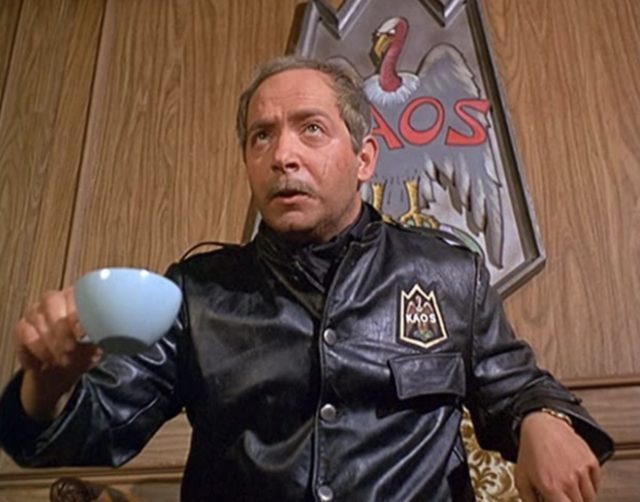
Bernie Kopell starred as devious KAOS agent Siegfried in Get Smart
twi-ny: Right. But I’d never heard you say it without Siegfried’s accent before.
hl: I didn’t even notice it was in or out.
bk: “Without structure there would be anarchy and chaos.”
twi-ny: That’s the line! My heart actually did a flip.
hl: [laughs]
twi-ny: As Hal noted before, Bernie, your characters are the ones that are more faithful — you have faith in Moses, you have faith in God — but Hal, your characters are —
hl: Skeptical. I won’t say cynical. I’ll say skeptical.
twi-ny: Do your personal relationships with Judaism relate at all to your characters’ relationships?
bk: Okay. I have to be truthful here. My father was very rough. He didn’t know that I had dyslexia. So in synagogue, I wasn’t keeping up fast enough in the cheder. He dug his nails into my forearm, just like that motherfucking Danny Kaye did. Danny Kaye was awful. I made a horrible mistake on The Danny Kaye Show: I got a laugh. He was way too rough. And he ended badly. There was some possibility that he might have done his Italian Giovanni character on Love Boat. So all the Love Boat people are at the Beverly Wilshire. And I see Danny there. And by this time he had done [the 1970 Broadway musical] Two by Two, which did not go well.
hl: No, it did not go well.
bk: And he’s having a big argument with our producer. So I go across the room to see my pal Pat Harrington, and as I’m coming back, Kaye is out of control, screaming at our producer, “You’re full of shit!” Not too great.
hl: In answer to your question, I’m a secular Jew. I do not attend synagogue. I am a tribal Jew. I’m the celebrity spokesman for the Jewish National Fund. I’ve been there for twenty-some-odd years, doing appearances for them and things like that. But that’s on the tribal level.
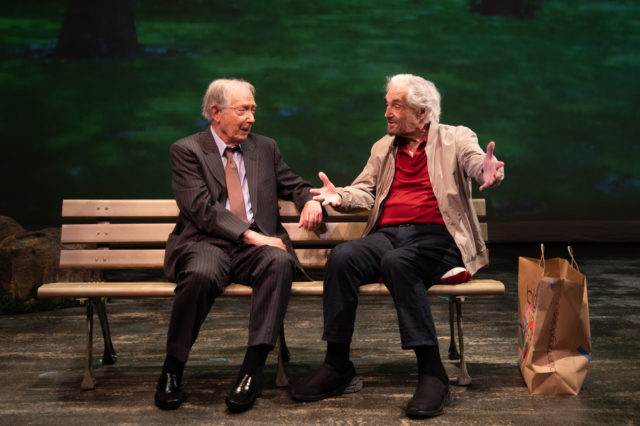
Phil (Bernie Kopell) and Marty (Hal Linden) discuss life and death in Two Jews, Talking (photo by Russ Rowland)
twi-ny: So Bernie, you and your characters are not the same.
bk: No. Vastly different.
hl: I have a lot of skepticism.
twi-ny: It’s hard not to these days, right?
hl: Yeah.
twi-ny: When you deliver certain jokes in the play, can you tell if it’s a more Jewish audience?
hl: We did this as a reading in North Carolina. In Mark Meadows’s district. I mean, western North Carolina.
twi-ny: That’s gotta be a tough audience.
hl: There wasn’t a Jew in miles, and they got a lot of the jokes. A few of the jokes they didn’t understand.
bk: I think part of it was they’re happy to see us, who’d been on television.
hl: But there was way more response than I expected.
bk: Me too.
twi-ny: Well, I know Bill Maher, who was raised Roman Catholic but whose mother was Jewish, talks about taking his political comedy nationwide, and he goes to red states and they laugh sometimes harder than the blue states.
bk: Bill Maher is a genius in my humble opinion. He’s brilliant.
twi-ny: So Hal, you said that you came into the project first. Have you been friends a long time?
hl: We were not that close. We’ve appeared in celebrity events together and things like that. We never worked together.
twi-ny: The only time I could find you guys on a stage at the same time was a 1980 ABC promo where you both danced in white tuxedos, with other stars from the upcoming season.
hl: I don’t remember doing that.
bk: I don’t either. But then again, at our age, what do we remember?
hl: I can’t tell you how many times I’ve seen things, particularly now with YouTube.
twi-ny: Well, that’s where you’ll find this, on YouTube.
twi-ny: Another interesting thing that I discovered was that Hal was on the first Love Boat pilot episode, which Bernie was not in. Dick Van Patten played the ship’s doctor.
bk: Dick was under contract to ABC. So when Eight Is Enough came about, they pulled him out, opening it up for other people. So I tested with a number of other guys.
twi-ny: You know who else was on that pilot episode?
hl: Harvey Korman.
twi-ny: Yes! And Don Adams.
hl: I only interacted with Karen Valentine. Maybe a couple of the regulars, I don’t recall.
bk: Well, let me throw this in. In the first pilot, the captain was an amazingly handsome Australian [Ted Hamilton]. He was gorgeous. But ABC said, No, he’s gorgeous, but he doesn’t have the authority. He doesn’t have the humor. He doesn’t have the kindness. So now we go to the second guy, the second guy worked on soaps. He wrote soaps. He acted in soaps. Quinn Redeker, I think his name was. And they said no. So now ABC is really getting pissed off because it’s so much money they’re putting into it and it’s not happening. So Gavin MacLeod had just come off of McHale’s Navy. And I had met him on McHale’s Navy. He was depressed because he’d done Operation Petticoat with Cary Grant, and he’d done The Mary Tyler Moore Show.
twi-ny: He was in the fabulous Kelly’s Heroes.
bk: Yes. So it opened it up for Gavin, and they were very happy. He had all the qualities they wanted and he became a great friend. A great friend. This was Gavin: There was some kind of a fakakta tradition in film and television that the director will perceive who is the weakest one in the cast.
hl: That’s the story of every play.
bk: And pick on them so that they can assert their authority.
hl: Jerry Robbins was notorious. He would always pick on the weakest link and destroy him.
bk: So Gavin says, Bern, let’s have a little chat with [director] Jack Arnold. Jack, come on over here. And we say in harmony, Jack, you may not behave that way on our set. Is that clear? Okay. Hey. All right. Fine. No problem. So he was a pussycat the rest of the way.
twi-ny: Getting back to Barney Miller, one of the things I noticed was how many of the regular cast members and guest stars I’ve seen recently onstage — Barbara Barrie, Linda Lavin, Kenneth Tigar, James Cromwell, Bob Dishy, Christopher Lloyd, David Paymer.
hl: The thing about Barney Miller, if you watched every episode, I’m sure you noticed this: Danny didn’t give a shit about repeaters.
twi-ny: What struck me is all these repeat actors, it gave it a theatrical feel, and it felt like the way the episodes were shot was very theatrical.
hl: Barney started out like a traditional sitcom. Three days of rehearsal, one day of blocking. And you do two shows on Friday night. Danny Arnold was a perfectionist. He was the head producer, the creator. The scripts were coming out later and later and later and later.
twi-ny: Five minutes before showtime, here you go, new pages.
hl: Yeah. Finally at about, I don’t know, I think it was about the fifth week or so, he didn’t have the last scene and we had to cancel the audience because we didn’t have a full script to do. What are you gonna do? He was still working on it. That’s a sin. People would come from all over the world to see the show — give them an ending. So the question was, Are you gonna have an audience next week? You gotta tell us now. And he wasn’t sure, so we never had an audience again.
twi-ny: Did you miss not having an audience?
hl: Believe it or not, when I was offered Barney Miller, I was offered three pilots. There were two hour shows and Barney Miller, which was a sitcom. I thought since I had spent so much time on Broadway, working to an audience would be easier for me. So that’s why I chose Barney out of the three — good choice, because the other two died. Anyway, the point is I quickly learned that the audiences are really a distraction, that you must close them off and work to the camera. If I’m talking to you, the camera’s over there; onstage, I would talk to you like this because the audience is out here. You know what I mean? The cameraman finally said to me, Hey, over here, because I kept crossing the line, working to the audience. So I quickly was dissuaded from that.
My point is that from then on, it was done actually like a movie. We’d start in the beginning, stage the first scene, work on it, shoot it; we’d only have two days of rehearsal, because that’s all the script we had. And on the third day we’d start shooting the show scene by scene, and because it was an independent production, we’d just do it until we figured it was right. The only people on the set were from the network to make sure we didn’t say anything wrong.
twi-ny: I also noticed how many of the episodes dealt with important issues. I hadn’t remembered it being so political.
hl: I was not a part of the writing of it, but a lot of it, the writers all came in and read the morning newspaper and found things. The atomic bomb, marital rape, racism, police violence. Danny Arnold was the genius behind it. Let me tell you a story. One of the episodes, do you remember the episode where Wojo falls for a hooker? [“Wojo’s Girl”] He keeps arresting everybody in the house to stop her from plying her trade. He finally goes and asks her for a date and she says, Sure, like everybody else, fifty bucks. At the end of the show, we have this kind of father-son-related talk as we’re about to go home. And just as he goes out the door, he turns back to me and says, Uh, Barney, can you lend me fifty bucks to payday?
The network says, You can’t say that. Danny says, Why not? They say, That means he’s going with the girl. Danny says, Very astute, you figured that out. So we’re shooting the show on the soundstage. He’s up in the office arguing with standards and practices. It’s the last line of the show, basically. We shot everything up to there. This was only about the third year; we weren’t a hit. We were still on the borderline. Eventually the director [Noam Pitlick] calls up and says, Okay, we’re about to shoot the last scene. What do we do? And Danny says, Shoot it the way it’s written, and hangs up. He says to the network, I’m shooting the show the way it’s written. If you don’t put it on the air, I’m not gonna make anymore. The network put it on the air: X-rated. Did you ever hear of an X-rated sitcom? It made the show. The ratings went way up and from there on in, they didn’t even come to the set.
bk: Can I do a Danny mishegas?
twi-ny: Absolutely.
bk: Before Barney, he worked with us on The Marlo Thomas Show. And he got very frustrated with lunch. For one hour, everybody zoomed out and they went to some restaurant and it was a big waste of time. He says, No, we’re not gonna do that anymore. So one day he ordered sandwiches and coffee and tea for everybody. But everybody zoomed out because he didn’t tell anybody that he had done this. So all this food is sitting here and Danny ate about half of it himself.
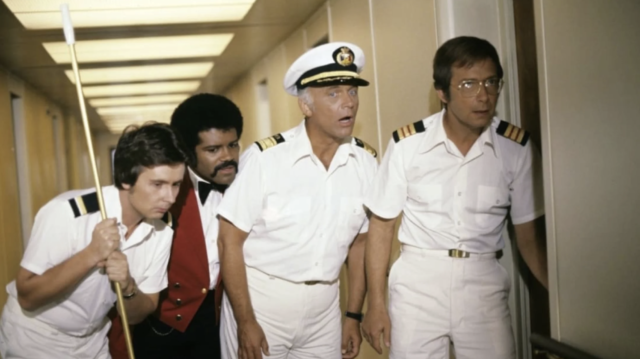
The crew of The Love Boat eavesdrop on the latest superstar guest
twi-ny: So Hal is working with a lot of theater actors while on The Love Boat, Bernie is working with —
bk: Academy Award winners.
twi-ny: Superstars from around the world.
bk: Some were lovely. One in particular was a gigantic pain in the ass.
twi-ny: And you’re gonna tell us.
bk: Yes. No, not mentioning any names. Shelley Winters.
hl: Oh, well, Shelley was a pain in the ass everywhere.
bk: But Ernie Borgnine, he worked with her on The Poseidon Adventure. So he knew her mishegas very intimately. So she’s on the show, and you know, it was so difficult to be on the ship — you gotta get on a little boat, bring all the equipment and all the people to Capri, for example, and then get on a truck. Everybody goes to location. Well, she didn’t like her hair, and she says, These lines are terrible. They don’t really suit me. She was just awful. Awful. Ernie Borgnine ripped into her with every Italian curse. And I think she was looking forward to that. She finally behaved.
twi-ny: New superstars every week.
bk: Eva Marie Saint, this is her personality. Shelley Winters, dreadful human being, couldn’t help it. So I’m outside in the parking lot. Eva Marie Saint comes by. Bernie, what are you doing? Oh, I’m studying. Would you like me to cue you? I said, I couldn’t possibly, you know, you being who you are. She said, I do it for all my friends. She said, Please, I’d love to do it. And she did it. What a mensch.
twi-ny: So there are some sweethearts in the business.
hl: We have two old actors who have worked with —
bk: Everybody.
hl: Everybody. I could tell you, some were magnificent. Judy Holliday was the most generous actress to work with. And some were . . . Ethel Merman. Ugh.
bk: I still have an earache from working with Ethel Merman.
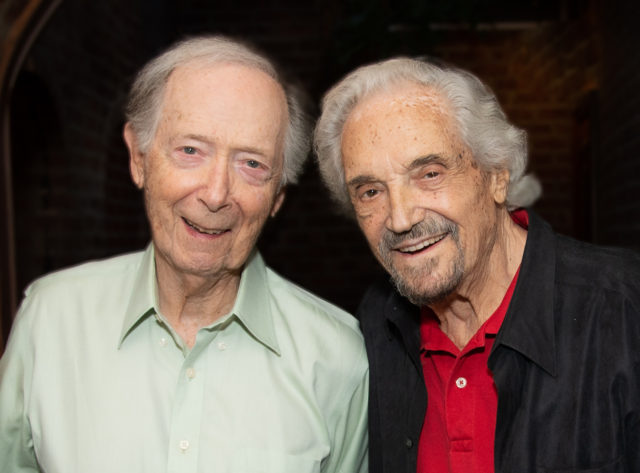
Bernie Kopell and Hal Linden have been in show business a combined 127 years (photo by Russ Rowland)
twi-ny: And now, for the first time, you’re working with each other. What’s that been like?
hl: I put up with it.
bk: [laughs]
twi-ny: You sound like an old married couple.
bk: I’m so great.
hl: Yeah. You should be great.
bk: I am.
twi-ny: It does look like you’re having fun doing it.
bk: It’s fun.
hl: You know, this is not Arthur Miller. This is just two Jews talking and the more laughs, the better. And that’s the way we approached it.
bk: We haven’t said one word yet about our director.
twi-ny: I am a fan of Dan Wackerman’s. I like his shows a lot.
hl: You know, as I said, we did the show only once in North Carolina, that was a reading. And there was only Ed. Weinberger; there’s no staging. So it was hardly directed. We were kind of on our own . . .
bk: Sitting in chairs.
hl: And Dan took it and tried to break it down and put it back together, you know, with some sense of where we’re going. He really turned it from just a conversation into a sketch. Let’s put it that way.
bk: Our director just keeps at us until we continue to improve, to get it right.
hl: It’s been two old guys who get to try again —
twi-ny: And succeed. Standing ovations, right? Selling out?
hl: Ovations aside, our critics are ourselves. “We did it.” “We didn’t do it.” “We gotta work on this.” And the more you do that, the longer you hang around.
twi-ny: Well, thank you for hanging around with me here. I hope the show runs as long as you want it to.
hl: It’s a limited run. He’s already got the next gig.
bk: And so do you.
hl: And I got the next gig.
twi-ny: Can you talk about it yet?
hl: In Kansas City, I’m going to do Come Blow Your Horn, the Lou Jacobi part [Mr. Baker].
bk: We have a cruise honoring Gavin MacLeod, who passed away a few months ago, on the Princess ship, going down to Mexico. That’s where we started: Mexico, Mexico, Mexico. Somebody whispered in Aaron Spelling’s ear, Schmuck, we’re a hit, we can go other places. So we went to the Caribbean, we went to the Mediterranean, we went everywhere in the world.
hl: And I got stuck on one set.
———————————————————————–
[For a behind-the-scenes look at the interview, go here.]
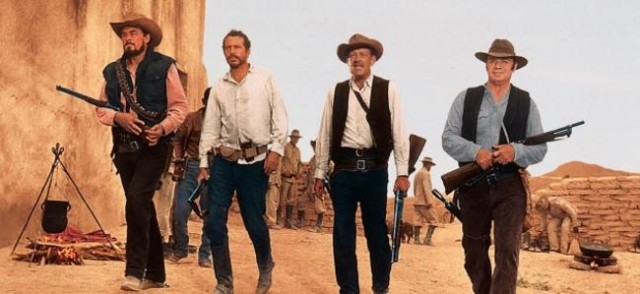
 Sam Peckinpah cemented his reputation for graphic violence and eclectic storytelling with the genre-redefining 1969 Western The Wild Bunch. When a robbery goes seriously wrong, Pike Bishop (William Holden), Dutch Engstrom (Ernest Borgnine), Freddie Sykes (Edmond O’Brien), Angel (Jaime Sánchez), and brothers Lyle (Warren Oates) and Tector Gorth (Ben Johnson) set out to get even, planning an even bigger score by going after a U.S. Army weapons shipment on a railroad protected by detective Pat Harrigan (Albert Dekker) and his hired gun, Deke Thornton (Robert Ryan), who is given nothing but “egg-suckin’, chicken-stealing gutter trash” to work with, including the hapless Coffer (Strother Martin) and T.C. (L. Q. Jones). The aging Pike, who sees this as his last score, is worried about being in cahoots with the unpredictable General Mapache (Emilio Fernández), a local warlord battling Pancho Villa’s freedom forces. But at the center of the film is the cat-and-mouse game between Pike and Thornton, the latter determined to capture his former partner, who left him to rot in jail years earlier. It all comes to a head in Agua Verde, which might translate to “Green Water” but will soon be bathed in red blood in one of the most violent shoot-outs ever depicted on celluloid.
Sam Peckinpah cemented his reputation for graphic violence and eclectic storytelling with the genre-redefining 1969 Western The Wild Bunch. When a robbery goes seriously wrong, Pike Bishop (William Holden), Dutch Engstrom (Ernest Borgnine), Freddie Sykes (Edmond O’Brien), Angel (Jaime Sánchez), and brothers Lyle (Warren Oates) and Tector Gorth (Ben Johnson) set out to get even, planning an even bigger score by going after a U.S. Army weapons shipment on a railroad protected by detective Pat Harrigan (Albert Dekker) and his hired gun, Deke Thornton (Robert Ryan), who is given nothing but “egg-suckin’, chicken-stealing gutter trash” to work with, including the hapless Coffer (Strother Martin) and T.C. (L. Q. Jones). The aging Pike, who sees this as his last score, is worried about being in cahoots with the unpredictable General Mapache (Emilio Fernández), a local warlord battling Pancho Villa’s freedom forces. But at the center of the film is the cat-and-mouse game between Pike and Thornton, the latter determined to capture his former partner, who left him to rot in jail years earlier. It all comes to a head in Agua Verde, which might translate to “Green Water” but will soon be bathed in red blood in one of the most violent shoot-outs ever depicted on celluloid.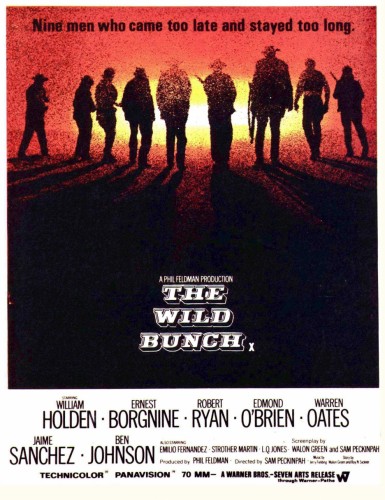

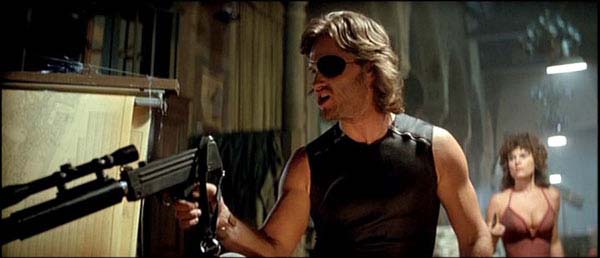
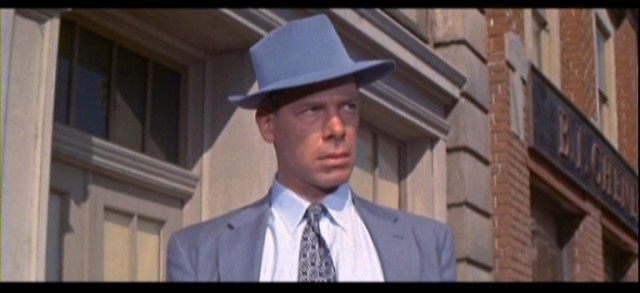
 It’s been a half dozen years since the Film Society of Lincoln Center paid tribute to director Richard Fleischer with a Spotlight at its annual Film Comment Selects series (including screenings of 10 Rillington Place and Mandingo) and Film Forum presented a brand-new 35mm print of Fleischer’s 1955 CinemaScope noir flick Violent Saturday for a special one-week run. So it’s time for another look at the Brooklyn-born director who also made such diverse films as Doctor Dolittle, Fantastic Voyage, Compulsion, and Soylent Green (as well as The Jazz Singer remake with Neil Diamond and Amityville 3-D) and whose father was Max Fleischer and uncle was Dave Fleischer, the two men behind the early Popeye and Betty Boop movies. Critics Nick Pinkerton and Nicolas Rapold of Overdue have joined forces with Anthology Film Archives for an eleven-day festival of nine of Fleischer’s lesser-known works that show off his wide range.
It’s been a half dozen years since the Film Society of Lincoln Center paid tribute to director Richard Fleischer with a Spotlight at its annual Film Comment Selects series (including screenings of 10 Rillington Place and Mandingo) and Film Forum presented a brand-new 35mm print of Fleischer’s 1955 CinemaScope noir flick Violent Saturday for a special one-week run. So it’s time for another look at the Brooklyn-born director who also made such diverse films as Doctor Dolittle, Fantastic Voyage, Compulsion, and Soylent Green (as well as The Jazz Singer remake with Neil Diamond and Amityville 3-D) and whose father was Max Fleischer and uncle was Dave Fleischer, the two men behind the early Popeye and Betty Boop movies. Critics Nick Pinkerton and Nicolas Rapold of Overdue have joined forces with Anthology Film Archives for an eleven-day festival of nine of Fleischer’s lesser-known works that show off his wide range.